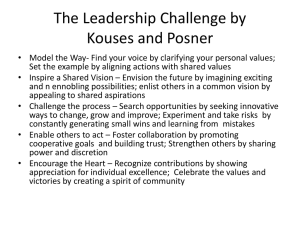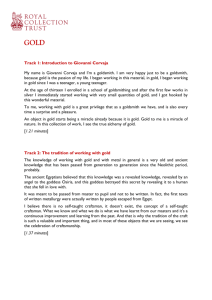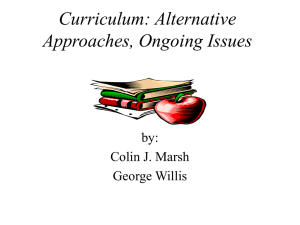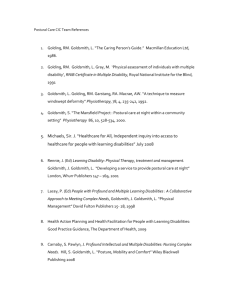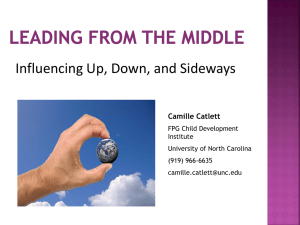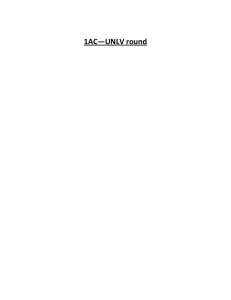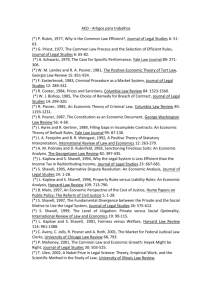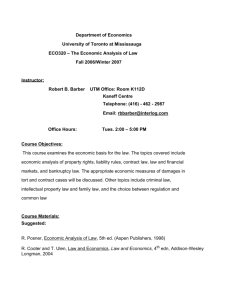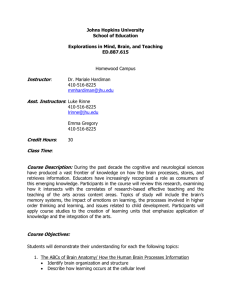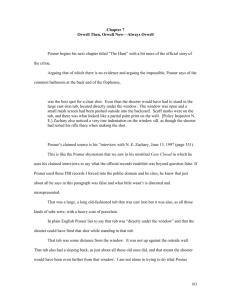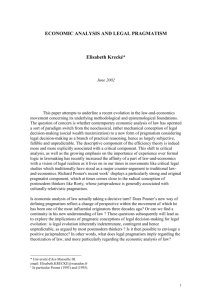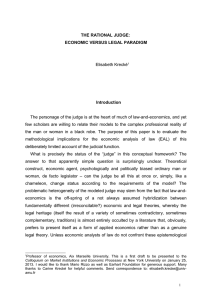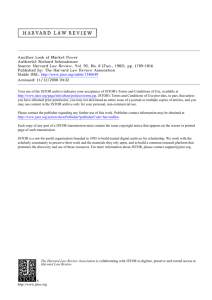The Politics of International Law - Department of Politics, New York
advertisement
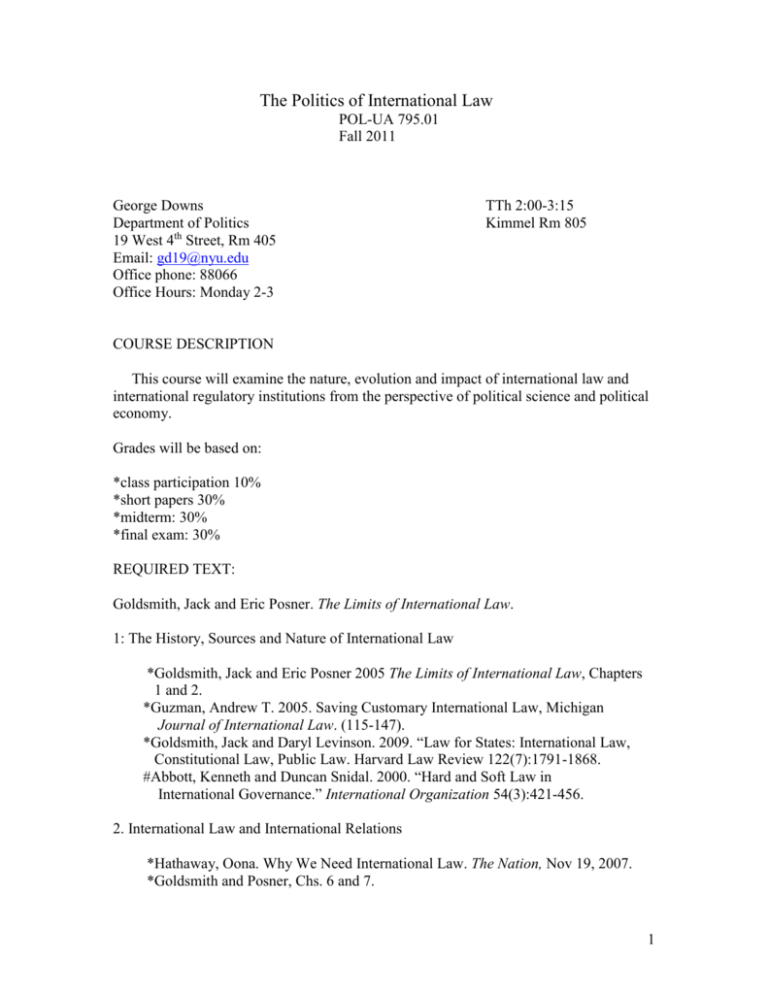
The Politics of International Law POL-UA 795.01 Fall 2011 George Downs Department of Politics 19 West 4th Street, Rm 405 Email: gd19@nyu.edu Office phone: 88066 Office Hours: Monday 2-3 TTh 2:00-3:15 Kimmel Rm 805 COURSE DESCRIPTION This course will examine the nature, evolution and impact of international law and international regulatory institutions from the perspective of political science and political economy. Grades will be based on: *class participation 10% *short papers 30% *midterm: 30% *final exam: 30% REQUIRED TEXT: Goldsmith, Jack and Eric Posner. The Limits of International Law. 1: The History, Sources and Nature of International Law *Goldsmith, Jack and Eric Posner 2005 The Limits of International Law, Chapters 1 and 2. *Guzman, Andrew T. 2005. Saving Customary International Law, Michigan Journal of International Law. (115-147). *Goldsmith, Jack and Daryl Levinson. 2009. “Law for States: International Law, Constitutional Law, Public Law. Harvard Law Review 122(7):1791-1868. #Abbott, Kenneth and Duncan Snidal. 2000. “Hard and Soft Law in International Governance.” International Organization 54(3):421-456. 2. International Law and International Relations *Hathaway, Oona. Why We Need International Law. The Nation, Nov 19, 2007. *Goldsmith and Posner, Chs. 6 and 7. 1 *Keohane, Robert International Law and International Relations: Two Optics. 1997. Harvard International Law Journal. 38(2). * Ginzberg and Shaffer. 2010. How Does International Law Work?: What Empirical Research Shows. Legal Studies Research Paper Series Paper No.09-54. 3. Compliance *Posner and Goldsmith, Ch. 3. *Downs, et al. “Is the Good News about Compliance Good News about Cooperation? International Organization, 1996. *Downs, George and Michael Jones. 2002. Reputation, Compliance, and International Law. Journal of Legal Studies 33(1): S95-114. *Carrubba, Clifford. 2005. Courts and Compliance in International Regulatory Regimes. Journal of Politics 67:2. . 4. International Trade *Posner and Goldsmith, Ch 5. *Milner, Helen et al. 2004. “International Trade and Domestic Politics.” *The Appellate Court of the WTO: Summary of the Judgment on Shrimp and Sea Turtles (1999). http://www.worldtradelaw.net/reports/wtoab/us-shrimp(ab)(21.5).pdf *Benvenisti, Eyal and George Downs 2004. “Distributive Politics and International Institutions: The Case of Drugs.” Case Western Journal of Int Law 36:1. 5. Human Rights I *Glendon, Mary Ann 1998. “Knowing the Declaration of Human Rights.” Notre 1 Dame Law Review 73: 1153. * Nagel, Thomas. 2005. “The Problem of Global Justice” Philosophy and Public Affairs. * Hathaway, Oona. 2002. Do Human Rights Agreements Make a Difference? The Yale Law Journal. 111(8): 1935-2042. * Posner and Goldsmith, Ch 4. 6. Human Rights II *Goodman, Ryan and Derek Jinks. 2004. “How to Influence States: Socialization and International Law.” Duke Law Journal 54: 621-. * Hafner-Burton, Emily. 2008. “Sticks and Stones: Naming and Shaming and The Human Right Enforcement Problem,” International Organization 62:4. 2 *Hafner-Burton, Emilie and Kiyoteru Tsutsui. 2005. “Human Rights in a Globalizing World: The Paradox of Empty Promises.” American Journal of Sociology 110(5): 1373-1411. * Lebovic and Voeten, 2009. The Cost of Shame. Journal of Peace Research. 7. International Tribunals and Judicial Independence I * Alter, Karen. 2008. Agents or Trustees? International Courts in their Political Context. European Journal of International Relations. * Voeten, Erik. 2008. The Impartiality of International Judges: Evidence from the European Court of Human Rights. APSR 101(4): 417-433. * Elsig, Manfred and Mark Pollack. 2011. Agents, Trustees, and International Courts. 8. International Tribunals and Judicial Independence II * Posner, Eric A. and John C. Yoo. 2005. Judicial Independence in International Tribunals. California Law Review 93(1): 3-73. * Helfer, Laurence and Anne-Marie Slaughter. 2005. Why States Create International Tribunals: A Response to Posner and Yoo. California Law Review. 9. The International Criminal Court * Rome Statute of the International Criminal Court U.N. Doc. A/CONF.183/9 (1998), Articles 1-8, 12-18. * Nanda, Ved P. 1998. “The Establishment of a Permanent International Criminal Court.” Human Rights Quarterly 20.2, pp.413-428. *Gilligan, Michael J. “Is Enforcement Necessary for Effectiveness? A Model of the International Criminal Regime.” International Organization 60:935-967. 10. The Laws of War *Morrow, James D. 2002. “The Laws of War, Common Conjectures, and Legal Systems in International Politics.” Journal of Legal Studies. S41-S60. * The Hague Regulations on the Laws of War on Land, 1907. * Roberts, Adam. 2002. “Counter-terrorism and the laws of war.” Survival 44(1): 7-32. *Taft and Buchwald. 2003. “Preemption, Iraq, and International Law.” 92 American Journal of International Law, #3. *Urquhart, Brian. 2006. Outlaw World. New York Review of Books May 11. 3 11. UN Peacekeeping and the Duty to Protect * Evans, Gareth and Mohamed Sahnoun 2002. “The Responsibility to Protect,” Foreign Affairs, 99-105. * Goodman, R. 2006. “Humanitarian Intervention and Pretexts for War.” American Journal of International Law 100: 107-141. * Chesterman, Simon. 2005. Just War or Just Peace After September 11. NYUJILP 281-301. * Drumbl, Mark A. “Self-Defense and the Use of Force: Breaking the Rules, Making the Rules, or Both” 2003 International Studies Perspectives 4:4, pp.409-431. 12. Environmental Law * Sands, Philippe J. 1989. The Environment, Community, and International Law. Harvard International Law Journal, 30, pp. 393-419. * Downs, George W., Kyle Danish, and Peter N. Barsoom 2000. “The Transformational Model of Regime Design: The Triumph of Hope of Experience?” Columbia Journal of International Law 465-514. * Keohane, Robert O. and Victor, David G. 2011. “The Regime Complex for Climate Change.” Perspectives on Politics 9(1):7-23. 13. The Fragmentation of International Law * ILC Report of the Fragmentation of International Law- Conclusions (2006). * Benvenisti, Eyal and George W. Downs. 2007. The Empire’s New Clothes: Political Economy and the Fragmentation of International Law.” Stanford Law Review 60(2): 595-631. * Simma, Bruno 2009. Universality of International Law from the Perspective of a Practitioner. EJIL 20(2): 265-297. *Cho, Sungjoon. 2007. Defragmenting World Trade. Northwestern Journal of Law and Business. Pp 39-88 14. International Law and the Democratic Deficit * Keohane, Robert O., Stephen Macedo, and Andrew Moravcsik. 2007. “Democracy Enhancing Multilateralism.” IILJ Working Paper 2007/4. * Nye, Joseph. Globalization’s Democratic Deficit: How to make International Institutions More Accountable,” July/August 2001 Foreign Affairs, pp. 2-7. * John Dryzek, “Transnational Democracy”, The Journal of Political Philosophy, Vol 7(1), 1999, pp. 30-37 and 43-51. 4
